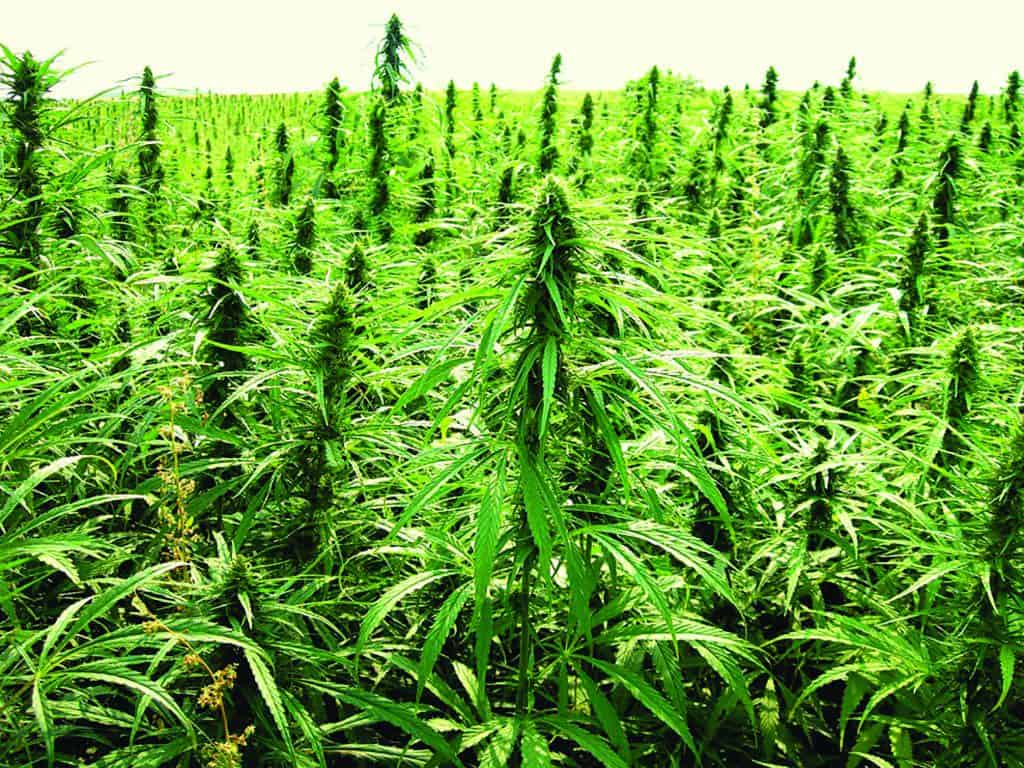
By Xander Landen/VTDigger
Some Vermont hemp farmers are in a “panic” over hemp regulations proposed by the federal government this past week that would strictly regulate the amount of THC — the psychoactive chemical found in the plant when it’s harvested.
The rules, released by the U.S. Department of Agriculture on Thursday, Oct. 31, would bar farmers from harvesting hemp plants that have a THC concentration of more than 0.3%. Under Vermont law, farmers can cultivate hemp with a THC concentration under 1%.
State regulators, hemp farmers and processors are concerned that the stricter THC standard could hurt business in Vermont.
Cary Giguere, an official with the Vermont Agency of Agriculture, Food and Markets who oversees the state’s hemp program, estimated under the proposed federal rule, 70% of the crop in the state would not be in compliance.
Hemp products sold in Vermont, including those containing CBD, a chemical in the plant used as an alternative medicine, must test at under 0.3% THC content.
Controlling the levels of THC in hemp plants can be difficult for farmers. But hemp that has higher THC levels can be processed to remove the chemical.
Giguere said it could take as long as two years for the federal government to finalize the rules, so for now, the industry will operate under Vermont’s hemp regulations.
But after the federal government finalizes those rules, it will have to reexamine and re-approve Vermont’s hemp program, using its new standards.
Giguere said he will be negotiating with the USDA to try to loosen some of the proposed THC regulations.
He said it seemed the hemp industry across the U.S. was in a “panic” because the proposed federal rule has stricter regulations for THC levels than what is enforced in most states.
“We’re not going to condemn a crop that somebody invested a lot to grow when that THC can be mitigated through processing,” Giguere said.
He said he thinks the bill was written less with farmers and more with law enforcement in mind. The regulations were promulgated after the 2018 Farm Bill legalized the production of hemp at the federal level.
A USDA spokesperson did not explain the reasoning behind the stricter rules. The official reiterated that the farm bill defined hemp as a cannabis plant with “a THC concentration of not more than 0.3 percent on a dry weight basis,” but provided no further information.
Rye Matthews, the co-founder of Northeast Hemp Commodities, a Middlebury company that grows and processes hemp, believes the federal regulations as proposed could damage hemp businesses — particularly small growers.
“What the USDA has just released looks like they’re taking a very hard line approach that is going to completely quash the industry that had been growing,” he said. He echoed Giguere, and said that it appears that the rules were “written by law enforcement.”
Under the rules, farmers who grow hemp that tests above the THC limit are required to have law enforcement officers destroy the crop. Labs that test hemp plants would have to be regulated by the Drug Enforcement Administration.
Sen. John Rodgers, D-Essex/Orleans, who operates a hemp farm and was instrumental in writing Vermont’s hemp regulations, said that many hemp crops have THC levels above 0.3%. Plants that are fully mature, and have the most CBD often have levels at 0.5% or 0.6%.
“The 0.3 is a total, a number that means nothing,” he said. “As the CBD level climbs toward maturity, the THC generally wants to go above the 0.3.”
Rodgers said he found federal regulation of the hemp industry “ludicrous and a waste of taxpayer dollars.”
“This is something that can save our farmland and our Vermont farms and it can do the same throughout rural America,” Rodgers said. “But if you get the DEA and the feds involved, I just don’t see it working for the small farmer.”




